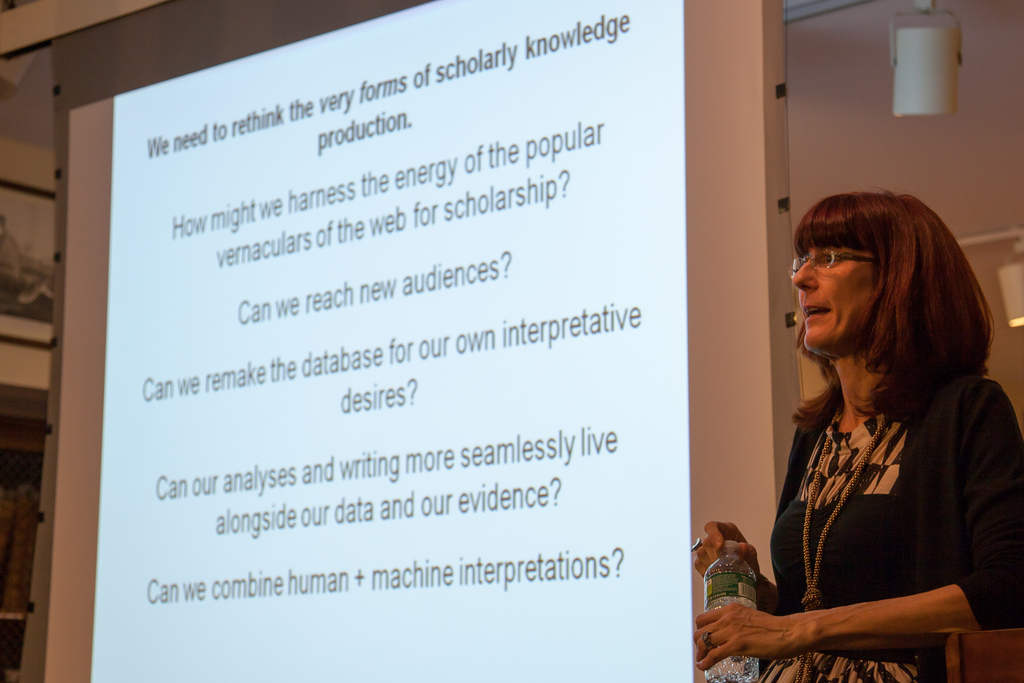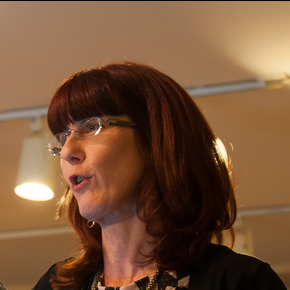
ABSTRACT
For Post-archive: Scholarship in the Digital Age, McPherson explored how the digital has changed the archive, which is now “everywhere,” noting that the digital is called both “anti-archival” and “anarchival” by scholars. Databases are about rigid categorization, they decrease complexity and reduce context. Humanities scholars should engage in digital policy and practice, including the construction of databases and models for database use. Scholars can influence the creation of technological systems by considering factors like the need for flexible designs that build filters and permissions into their ontological structures, as not all information necessarily wants to be free. To be post-archival is to reanimate the archive for new ends. In the post-archival era, digital media, social media, and experimental design should “inject the human” into the archive.
A video recording of Tara McPherson’s talk, Post-archive: Scholarship in the Digital Age, is available below.
BIO
 Tara McPherson is Associate Professor of Gender and Critical Studies at the University of Southern California’s School of Cinematic Arts, co-director of USC’s Center for Transformative Scholarship, among the founding organizers of Race in Digital Space, a core member of HASTAC (Humanities, Arts, Science, and Technology Advanced Collaboratory), the founding editor of the peer reviewed multii-media journal Vectors, and an editor of Digital Youth, Innovation and the Unexpected, part of the MacArthur Foundation series on Digital Media and Learning. She served as a co-editor of Hop on Pop: The Politics and Pleasures of Popular Culture (Duke UP: 2003), and her book Reconstructing Dixie: Race, Gender and Nostalgia in the Imagined South (Duke UP: 2003) received the 2004 John G. Cawelti Award for the outstanding book published on American Culture. McPherson is currently working on a manuscript about the cultural and racial logics of code.
Tara McPherson is Associate Professor of Gender and Critical Studies at the University of Southern California’s School of Cinematic Arts, co-director of USC’s Center for Transformative Scholarship, among the founding organizers of Race in Digital Space, a core member of HASTAC (Humanities, Arts, Science, and Technology Advanced Collaboratory), the founding editor of the peer reviewed multii-media journal Vectors, and an editor of Digital Youth, Innovation and the Unexpected, part of the MacArthur Foundation series on Digital Media and Learning. She served as a co-editor of Hop on Pop: The Politics and Pleasures of Popular Culture (Duke UP: 2003), and her book Reconstructing Dixie: Race, Gender and Nostalgia in the Imagined South (Duke UP: 2003) received the 2004 John G. Cawelti Award for the outstanding book published on American Culture. McPherson is currently working on a manuscript about the cultural and racial logics of code.
